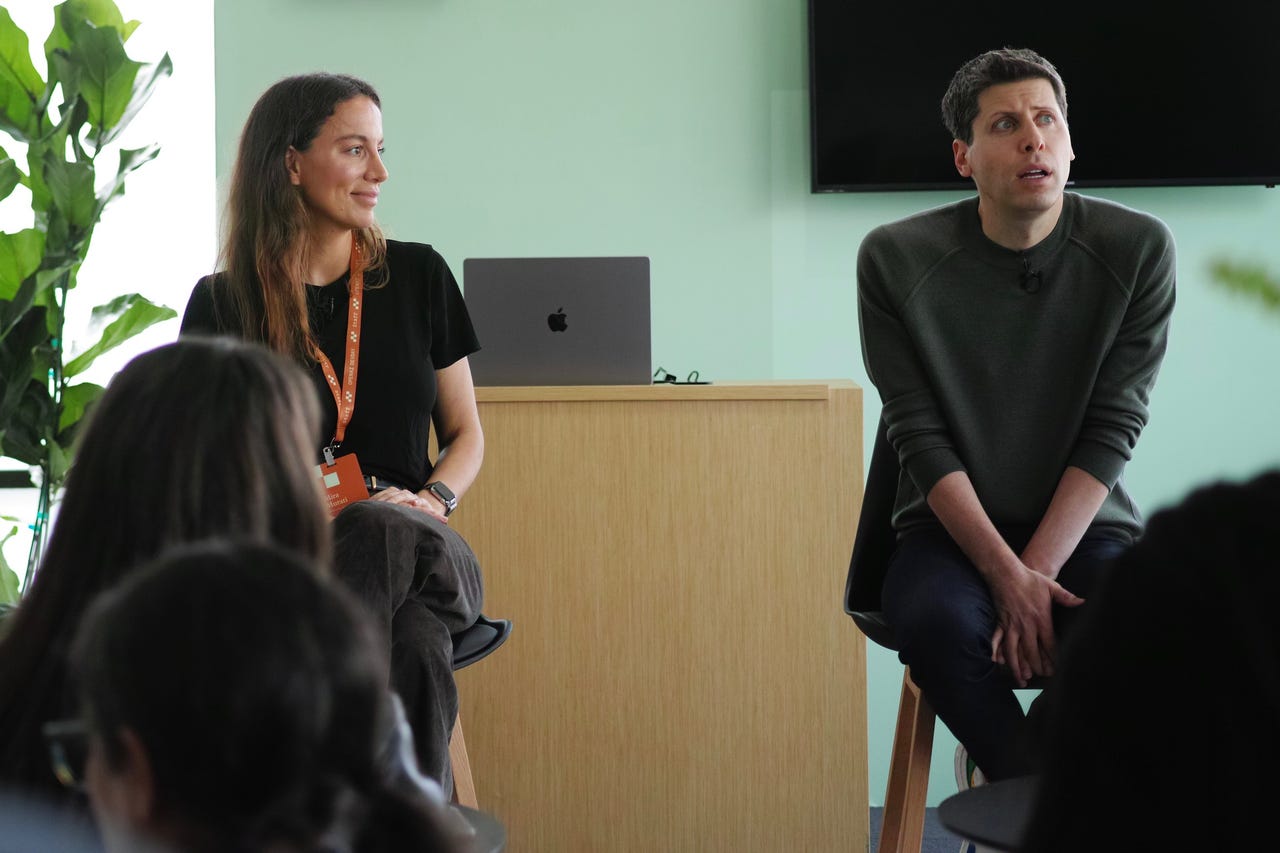OpenAI CEO sees uphill struggle to GPT-5, potential for new kind of consumer hardware


OpenAI CEO Sam Altman, right, with the company's CTO, Mira Murati, left. There are "some very hard science questions" on the road to a GPT-5, says Altman.
The next version of OpenAI's large language model program, which would be called GPT-5, faces some very difficult scientific challenges that make it hard to set a definite timeframe for when the program might appear, said OpenAI CEO Sam Altman on Monday.
"The number of things we've gotta figure out before we make a model that we'll call GPT-5 is still a lot," said Altman, in a press conference following the company's first-ever developer conference, which took place in San Francisco.
Also: OpenAI CEO: We're happy if Microsoft makes a sale, and they're happy if we make a sale
The remarks were among a number of questions Altman and chief technologist Mira Murati fielded regarding the future direction of the technology, including the prospect the company might make its own consumer hardware devices.
"People want it, they want to do it, but it's not like an engineering project, where we can say it's guaranteed to work," said Altman of the steps on the way to a future GPT-5, which would follow in the path of the current programs, GPT-3.5 and GPT-4. The programs form the underlying capabilities of the ChatGPT app that has taken the world by storm.
"Some things might blow up, a lot of things might happen" on the path to a GPT-5, said Altman. "We have to figure out some very hard science questions to do it, we have to go build more computers."
As a result, "it's very hard to predict timelines for these things."
Also: OpenAI assembles team of experts to fight 'catastrophic' AI risks - including nuclear war
Whenever it does arrive, said Altman, GPT-5 will change people's perception of the technology. Each successive version, he noted, has gotten more broadly capable.
"GPT-3 worked well for only one use case," he reflected. "People built businesses [on top of GPT-3] making, like, copywriting services -- that was kind of it, though, not much."
Altman and Murati grinned when asked about Elon Musk upstaging their conference with his own chatbot, Grok. "Elon will be Elon," says Altman.
GPT-3 "worked a little bit for a few other things," but, the successor, GPT-3.5 "worked well for, like, five to eight different categories, and GPT-4 was the first time where it works decently well for dozens of categories of use," said Altman.
"You can see that it's gonna work for more," he said. "And by the time of GPT-5, we expect that it'll work pretty well for most things you might wanna build. So, the trend is, I think, consistent, and at any given time, the sort-of wisdom of what the current version doesn't work for changes a lot."
Asked if OpenAI would get involved in making consumer hardware, Altman was philosophical. He didn't commit but didn't rule it out, either.
Also: 6 AI tools to supercharge your work and everyday life
"We'd like to figure out something amazing," he said. "If there's something to do, we'll do it.
Added Altman, "I do believe that every time a new affording technology of this magnitude comes along, there's supposed to be an amazing new device."
Altman was also asked why Elon Musk's X, formerly Twitter, chose to unveil its own chatbot, Grok, the night before the OpenAI conference: Was it perhaps a sign of Musk'slingering hostility toward OpenAI, which he helped finance in the beginning?
"Elon will be Elon," said Altman with a grin.